Guest Blogger: Angela Knight
The winner of Angela's book is: Liz Roadifer. Congrats, Liz! Send me your contact info and I'll pass it along to Angela. Thanks so much to everyone who participated!


From Mild to Wild
One of my favorite subjects is the importance of love scenes in romance. Sometimes I think writers view these scenes as basically a porn break in the story. All action stops while the characters make the mattress squeak. But in fact, love scenes are a great way to show character and the development of the romance. Here are a few tips:
Show the Passion
1.) The way people make love reveals how they feel about one another. For romance writers, love scenes are a prime way to show the development of the romance. You should be able to read the love scenes alone and see the romance grow.
2.) In romance, we spend a lot of time setting up how sexy the hero is, how seductive he is, what a good kisser he is. We build him up until the reader is dying to experience what it’s like to make love to him. You have got to pay that off with more than three pages of mechanical sex. Otherwise what you’re telling us is that he’s really not that good. You’ve cheated your reader, your characters, and your book.
Making love scenes structurally important
Every scene in a romance (including love scenes) must do at least one of three things, or it needs to be cut.
A.) Reveal character
B.) Develop the conflict (internal, external or romantic)
C.) Develop the romance
Just being hot and sexy is not a good enough reason for a love scene to exist. That’s one of the main problems I see in a lot of erotic romance and women’s erotica -- the sex may be hot, but it doesn’t do anything. It doesn’t tell you anything about the characters and it doesn’t develop the conflict or the romance. From a storytelling standpoint, scenes like that are the equivalent of spending ten pages to describe a sunrise. It’s bad writing.
To make a love scene important:
1.) Think about where in the story this particular love scene falls. Is it early in the romance? Are they beginning to fall in love? Are they really passionate about each other, or unsure? What’s happening in the romantic conflict?
2.) What kind of emotion do you want to communicate with this scene? If they’ve just had an argument and this is make-up sex, the mood may have a note of lingering anger. If it’s right before a climactic battle they’re afraid they’re not going to survive, they’re going to be especially passionate and tender with each other. When we have sex, we’re at our most vulnerable to one another. Emotions are at their height -- which makes it a perfect time for drama.
3.) Think about the romantic conflict. What can happen in the scene that will intensify the friction between the hero and heroine?
4.) If the emotion is really dark elsewhere in the story, especially in a romantic suspense, you can use your love scene to lighten the mood.
5.) But watch your timing. If the characters should logically be off chasing the bad guy and preventing a murder, they shouldn’t be making love. Save the love scenes for some point in the story where they can’t do anything else.
6.) By the same token, following a gruesome murder with a love scene is probably a bad idea. You don’t want to give readers the idea your couple is callous.
7.) I sometimes use a love scene to lull the reader into a sense of relaxation before hitting her with something ugly.
Motivating love scenes
1.) Heroes, heroines and villains often seems to assume certain natural roles in romances. Villains drive the external conflict, for example -- it’s their actions that set the rest of the story in motion. The villain kills his first victim, steals some priceless object or sends a threatening letter to the heroine.
A.) The heroine, for her part, sets the sexual pace; the hero can push all he likes, but she’s the one who decides when and if they make love. Otherwise, it’s rape. She’s the key to making a love scene believable, because she’s got the most to lose.
B.) But the sexual heat in a book ultimately comes from the hero. That’s not to say the heroine can’t make the first move – she certainly can. But it’s the hero that really turns the readers – and the heroine – on. He has to win her sexual trust before he can do that.
2.) Use Linda Howard’s Twelve Steps to Intimacy to show that the hero has taken the trouble to gain the heroine’s physical trust.
A.) In the initial stages, it’s all about checking the potential partner out – is he or she sexually attractive?
B.) After the couple has that first eye-to-body contact, there’s an electric moment when their eyes meet. Women will often instinctively drop their eyes or look away, since a direct stare is aggressive. Your Alpha hero, on the other hand, may hold the gaze until she meets his eyes again and gives him a slight smile. That’s his invitation to come over for the next stage: voice to voice, where the characters talk.
C.) Next, Howard says, he may touch her hand, either by a handshake or in a simple brush of the fingers. After that, he’ll touch her shoulders, then her waist. Any time you’re working from the waist down, it becomes overtly sexual, even if it’s just a brush of fingertips along the knee.
D.) Next comes the first kiss, which needs to be given a lot of attention. The kiss is a precursor to lovemaking, an indication of what we and the heroine can expect. How skillful is he? How tender? Build the anticipation.
E.) The next step is a touch of the head. We’ve all seen couples play with each other’s hair or caress faces. We all instinctively recognize this as intimate behavior.
F.) It’s at this point that the hero may touch her breasts. If your heroine’s arousal doesn’t match his, Howard says, this is where she’s going to call a halt. Much further along, and it’s very difficult to get the male to stop.
G.) Now we need privacy, because the next steps are mouth to breast, hand to genitals, and actual penetration.
According to Howard, if your hero skips steps -- going from talking straight to a kiss, for example -- that can be very shocking and arousing, but he also runs the risk that the heroine will shut him down hard. Then he’ll have to work to get back in her good graces again.
Passion and the Five Senses
1.) When you begin writing the love scene, don’t rush. Give your characters -- and your readers -- time to savor it. I usually give a love scene ten pages, rarely less than five. The longer a scene is, the more emotionally powerful it is. One rule of thumb I’ve heard is that a scene can’t have real power if it’s less than two pages. I’ve been known to write kisses that went on for three or four paragraphs.
2.) Think about location. You don’t always have to do it in bed. Actually, you may want to do it everywhere but bed, because other locations make the sex seem more spontaneous and exciting.
Create a sensual environment -- a garden in the spring, perhaps. The hero and heroine are sitting in the warm sunlight, listening to the lazy drone of bees and the chirp of robins. The air smells of roses and rich brown earth. He touches her . . .
3.) Next, think about who makes the first move. What kind of foreplay is he using? How does it feel? What position are they going to make love in? Remember: these people are going to be making love a lot, so it needs to be different every time. If one character is dominant in a scene, I might have the other run things in the next one. Mix it up.
4.) It’s very important to be as creative as possible with every sexual encounter, because you can bore readers easily. I did a survey once, and many readers said they don’t like long love scenes because they’re so often badly done.
5.) The love scene is where you focus on the sensations the characters feel. Think about your hero’s hands. Are they strong, warm? A little rough with callouses from hard work or swinging a sword? How does his mouth taste? What does his body look like? Lean? Powerfully muscled? Smooth or hairy? How does his voice sound?
6.) Don’t forget your heroine. I sometimes do a POV shift during the scene -- and yes, I know you’re not supposed to do that. Sue me. But I think it’s important to show how each of the characters feel about making love. How do they perceive each other?
7.) How does your heroine look to your hero? How does her skin smell and taste to him? What about her really turns him on?
8. ) It’s often in one of the love scenes where I first show evidence that my hero is falling in love with my heroine. My guy has probably been with a lot of other women, but sometime while he’s making love to her, it dawns on him that there’s something different about my heroine. Maybe he doesn’t recognize the importance of that moment, but the reader does. Having that moment fall during the love scene gives the scene more emotional significance to the reader.
9.) The advice I always give is if you really want to turn on the reader, you have to be turned on yourself. Don’t try to write something that doesn’t do it for you, because the reader will be able to tell.
Pillow Talk
1.) Readers love flashes of humor during passion, because it makes the characters seem more real and human.
2.) But be wary of having your characters prose on with reams of dialogue. The more passionate we are, the less inclined we are to talk. If you have your characters composing sonnets to one another’s eyes, the unconscious message you’re sending is that they’re not that turned on.
3.) Keep the dialogue short, rough and sexy. I love having my Alpha Male ask questions while making love.
4.) Make sure he stays in character with his dialogue, even if it means being a little politically incorrect. Though many conservative readers flinch from coarse language, having your hero use euphemisms may sound off.
5.) Avoid manhood in particular because many readers find it laughable.
6.) Certain words are radioactive, especially terms for female genitalia which are also used as insults.
7.) Avoid Latin phrases in love scenes, such as “penis” and “vagina.” Don’t use clinical language when you’re trying for passion.
8.) Use the language that sounds true for the kind of character you’re writing.
9.) Note that it’s not the F-word that makes a scene hot. It’s the detail and emotion a writer uses in the scene.
Heat Levels and Reader Comfort
1.) Trade paperbacks tend to allow sexier content than mass market. Younger, hipper readers tend buy trades, and they’re more willing to walk on the wild side. That means you can get away with more.
2.) Look at what other authors in your subgenre are doing. Push the envelop a bit, but probably not as far as you would in a trade. Write your love scene a little longer with a little more detail and have the characters make love in gardens or swimming pools as well as beds.
3.) Also, be aware that our readership is changing. Yes, you do have some really conservative readers who still believe “Good Girls Don’t.” But our younger readers have grown up on MTV and cable, and they’re a lot harder to shock. In fact, they’re actively looking for sexy books, which is why erotic romance and women’s erotica are so hot right now.
I think that even after the erotica craze fades, readers are still going to looking for sexier romance than in the past. If you can deliver that, editors and publishers will love you.
http://www.angelasknights.com/
One of my favorite subjects is the importance of love scenes in romance. Sometimes I think writers view these scenes as basically a porn break in the story. All action stops while the characters make the mattress squeak. But in fact, love scenes are a great way to show character and the development of the romance. Here are a few tips:
Show the Passion
1.) The way people make love reveals how they feel about one another. For romance writers, love scenes are a prime way to show the development of the romance. You should be able to read the love scenes alone and see the romance grow.
2.) In romance, we spend a lot of time setting up how sexy the hero is, how seductive he is, what a good kisser he is. We build him up until the reader is dying to experience what it’s like to make love to him. You have got to pay that off with more than three pages of mechanical sex. Otherwise what you’re telling us is that he’s really not that good. You’ve cheated your reader, your characters, and your book.
Making love scenes structurally important
Every scene in a romance (including love scenes) must do at least one of three things, or it needs to be cut.
A.) Reveal character
B.) Develop the conflict (internal, external or romantic)
C.) Develop the romance
Just being hot and sexy is not a good enough reason for a love scene to exist. That’s one of the main problems I see in a lot of erotic romance and women’s erotica -- the sex may be hot, but it doesn’t do anything. It doesn’t tell you anything about the characters and it doesn’t develop the conflict or the romance. From a storytelling standpoint, scenes like that are the equivalent of spending ten pages to describe a sunrise. It’s bad writing.
To make a love scene important:
1.) Think about where in the story this particular love scene falls. Is it early in the romance? Are they beginning to fall in love? Are they really passionate about each other, or unsure? What’s happening in the romantic conflict?
2.) What kind of emotion do you want to communicate with this scene? If they’ve just had an argument and this is make-up sex, the mood may have a note of lingering anger. If it’s right before a climactic battle they’re afraid they’re not going to survive, they’re going to be especially passionate and tender with each other. When we have sex, we’re at our most vulnerable to one another. Emotions are at their height -- which makes it a perfect time for drama.
3.) Think about the romantic conflict. What can happen in the scene that will intensify the friction between the hero and heroine?
4.) If the emotion is really dark elsewhere in the story, especially in a romantic suspense, you can use your love scene to lighten the mood.
5.) But watch your timing. If the characters should logically be off chasing the bad guy and preventing a murder, they shouldn’t be making love. Save the love scenes for some point in the story where they can’t do anything else.
6.) By the same token, following a gruesome murder with a love scene is probably a bad idea. You don’t want to give readers the idea your couple is callous.
7.) I sometimes use a love scene to lull the reader into a sense of relaxation before hitting her with something ugly.
Motivating love scenes
1.) Heroes, heroines and villains often seems to assume certain natural roles in romances. Villains drive the external conflict, for example -- it’s their actions that set the rest of the story in motion. The villain kills his first victim, steals some priceless object or sends a threatening letter to the heroine.
A.) The heroine, for her part, sets the sexual pace; the hero can push all he likes, but she’s the one who decides when and if they make love. Otherwise, it’s rape. She’s the key to making a love scene believable, because she’s got the most to lose.
B.) But the sexual heat in a book ultimately comes from the hero. That’s not to say the heroine can’t make the first move – she certainly can. But it’s the hero that really turns the readers – and the heroine – on. He has to win her sexual trust before he can do that.
2.) Use Linda Howard’s Twelve Steps to Intimacy to show that the hero has taken the trouble to gain the heroine’s physical trust.
A.) In the initial stages, it’s all about checking the potential partner out – is he or she sexually attractive?
B.) After the couple has that first eye-to-body contact, there’s an electric moment when their eyes meet. Women will often instinctively drop their eyes or look away, since a direct stare is aggressive. Your Alpha hero, on the other hand, may hold the gaze until she meets his eyes again and gives him a slight smile. That’s his invitation to come over for the next stage: voice to voice, where the characters talk.
C.) Next, Howard says, he may touch her hand, either by a handshake or in a simple brush of the fingers. After that, he’ll touch her shoulders, then her waist. Any time you’re working from the waist down, it becomes overtly sexual, even if it’s just a brush of fingertips along the knee.
D.) Next comes the first kiss, which needs to be given a lot of attention. The kiss is a precursor to lovemaking, an indication of what we and the heroine can expect. How skillful is he? How tender? Build the anticipation.
E.) The next step is a touch of the head. We’ve all seen couples play with each other’s hair or caress faces. We all instinctively recognize this as intimate behavior.
F.) It’s at this point that the hero may touch her breasts. If your heroine’s arousal doesn’t match his, Howard says, this is where she’s going to call a halt. Much further along, and it’s very difficult to get the male to stop.
G.) Now we need privacy, because the next steps are mouth to breast, hand to genitals, and actual penetration.
According to Howard, if your hero skips steps -- going from talking straight to a kiss, for example -- that can be very shocking and arousing, but he also runs the risk that the heroine will shut him down hard. Then he’ll have to work to get back in her good graces again.
Passion and the Five Senses
1.) When you begin writing the love scene, don’t rush. Give your characters -- and your readers -- time to savor it. I usually give a love scene ten pages, rarely less than five. The longer a scene is, the more emotionally powerful it is. One rule of thumb I’ve heard is that a scene can’t have real power if it’s less than two pages. I’ve been known to write kisses that went on for three or four paragraphs.
2.) Think about location. You don’t always have to do it in bed. Actually, you may want to do it everywhere but bed, because other locations make the sex seem more spontaneous and exciting.
Create a sensual environment -- a garden in the spring, perhaps. The hero and heroine are sitting in the warm sunlight, listening to the lazy drone of bees and the chirp of robins. The air smells of roses and rich brown earth. He touches her . . .
3.) Next, think about who makes the first move. What kind of foreplay is he using? How does it feel? What position are they going to make love in? Remember: these people are going to be making love a lot, so it needs to be different every time. If one character is dominant in a scene, I might have the other run things in the next one. Mix it up.
4.) It’s very important to be as creative as possible with every sexual encounter, because you can bore readers easily. I did a survey once, and many readers said they don’t like long love scenes because they’re so often badly done.
5.) The love scene is where you focus on the sensations the characters feel. Think about your hero’s hands. Are they strong, warm? A little rough with callouses from hard work or swinging a sword? How does his mouth taste? What does his body look like? Lean? Powerfully muscled? Smooth or hairy? How does his voice sound?
6.) Don’t forget your heroine. I sometimes do a POV shift during the scene -- and yes, I know you’re not supposed to do that. Sue me. But I think it’s important to show how each of the characters feel about making love. How do they perceive each other?
7.) How does your heroine look to your hero? How does her skin smell and taste to him? What about her really turns him on?
8. ) It’s often in one of the love scenes where I first show evidence that my hero is falling in love with my heroine. My guy has probably been with a lot of other women, but sometime while he’s making love to her, it dawns on him that there’s something different about my heroine. Maybe he doesn’t recognize the importance of that moment, but the reader does. Having that moment fall during the love scene gives the scene more emotional significance to the reader.
9.) The advice I always give is if you really want to turn on the reader, you have to be turned on yourself. Don’t try to write something that doesn’t do it for you, because the reader will be able to tell.
Pillow Talk
1.) Readers love flashes of humor during passion, because it makes the characters seem more real and human.
2.) But be wary of having your characters prose on with reams of dialogue. The more passionate we are, the less inclined we are to talk. If you have your characters composing sonnets to one another’s eyes, the unconscious message you’re sending is that they’re not that turned on.
3.) Keep the dialogue short, rough and sexy. I love having my Alpha Male ask questions while making love.
4.) Make sure he stays in character with his dialogue, even if it means being a little politically incorrect. Though many conservative readers flinch from coarse language, having your hero use euphemisms may sound off.
5.) Avoid manhood in particular because many readers find it laughable.
6.) Certain words are radioactive, especially terms for female genitalia which are also used as insults.
7.) Avoid Latin phrases in love scenes, such as “penis” and “vagina.” Don’t use clinical language when you’re trying for passion.
8.) Use the language that sounds true for the kind of character you’re writing.
9.) Note that it’s not the F-word that makes a scene hot. It’s the detail and emotion a writer uses in the scene.
Heat Levels and Reader Comfort
1.) Trade paperbacks tend to allow sexier content than mass market. Younger, hipper readers tend buy trades, and they’re more willing to walk on the wild side. That means you can get away with more.
2.) Look at what other authors in your subgenre are doing. Push the envelop a bit, but probably not as far as you would in a trade. Write your love scene a little longer with a little more detail and have the characters make love in gardens or swimming pools as well as beds.
3.) Also, be aware that our readership is changing. Yes, you do have some really conservative readers who still believe “Good Girls Don’t.” But our younger readers have grown up on MTV and cable, and they’re a lot harder to shock. In fact, they’re actively looking for sexy books, which is why erotic romance and women’s erotica are so hot right now.
I think that even after the erotica craze fades, readers are still going to looking for sexier romance than in the past. If you can deliver that, editors and publishers will love you.
http://www.angelasknights.com/
Angela is giving away a copy of her book WARRIOR to one lucky commenter. Just leave a comment here about her post and a winner will be selected Tuesday night.
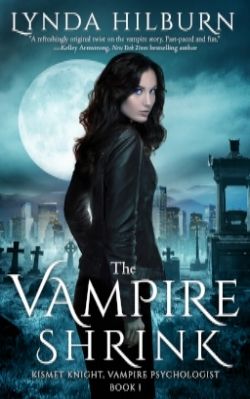
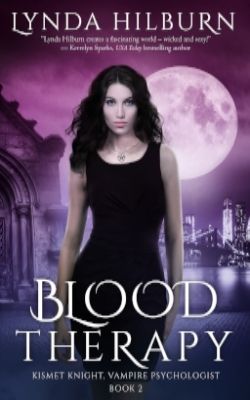
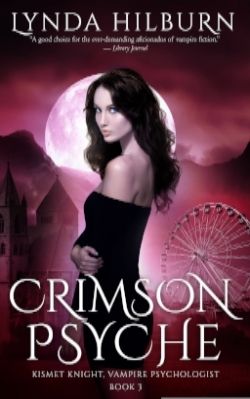
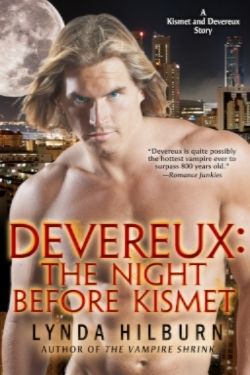
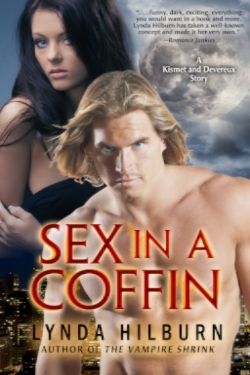
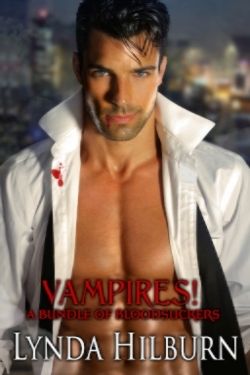
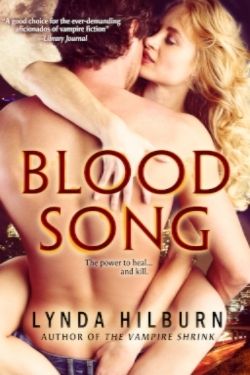
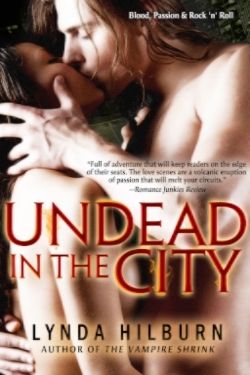
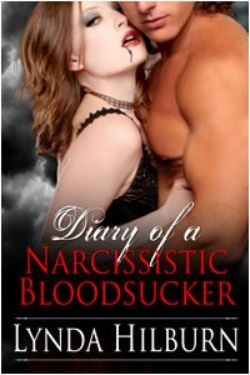
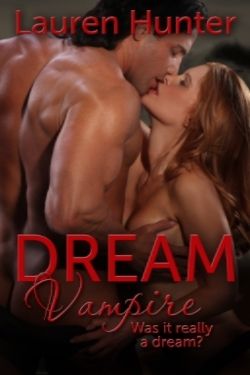
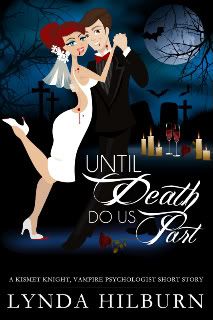
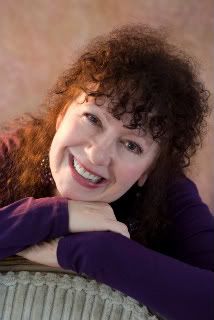
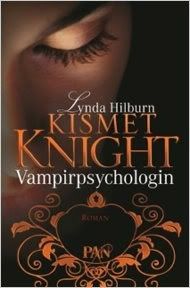
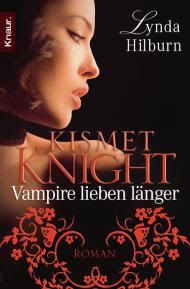
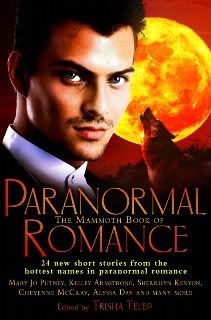
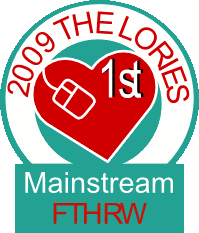




25 Comments:
I read a lot of books and I have seen the shift in romance storytelling- and although I'm not one to be thrown off by detailed sex scenes in books, I do agree that each foray should be relevant. I get involved in the characters and I enjoy seeing how they interact with one another. I need to have that tension, that chemistry.
Great blog today- I really liked getting the author perspective on sex scenes in books. Oops, gotta run- kids are summoning me.
Hi Angela
It is so fascinating when a writer describes how it's done - I mean on the page.
I toy with the idea of writing fiction but haven't completed anything. If I do and if I need to write a love scene I will have your essay next to me. Succinct and understandable.
Now I know why your Alpha males are such a turn on.
Since I enjoy reading quite a bit a love scene definitely needs to create the right mood for me and show meaning for the characters involved and not just having sex in the story line. I think romance in books has developed a lot in the last few years and gotten more sensual and descriptive, but it always needs to be relevant to the story and characters feelings.
Thank you for your posting today.
Thorougly enjoyed this mini-workshop on love scenes. I particularly liked Angela's explanations of how the type of sex the characters have is tied in with the importance of the scene. Her belief that the heroine usually sets the sexual pace and the hero the heat is intriguing and worth exploring.
Definitely a keeper for my how-to-write-a-great-sex-scene folder.
Thanks for the wonderful advice, Angela.
Hi Angela,
I enjoyed your comments on how to write love scenes and make them meaningful. Actually, I enjoy your novels a lot. I just rebought Jane's Warlord and WarFem this past weekend in St. Louis while on a trip. Baird is such a hottie.
Jane and Baran have such chemistry in the story that it just sizzles. But at the same time, you really can feel how much they care for and love each other.
I only hope that my writing will reflect such true emotion. Thanks again Angela.
Karen
Hi Angela,
Thanks for the mini-workshop! I found it quite informative.
I love reading your books and keep up the good work!
Terri W.
What a lot of interesting insight into what goes into putting a book together! Thanks for 'splainin' it Angela. LOL
Deidre
Wow. That sure does put alot of things in perspective. I loved it. I really get into the characters in the books so I want everything to mesh together smoothly. Thanks for the great blog.
Angela,
Thank you all for these great tips *bg* This was very informative and I'll definitely be saving the information.
Angela - Thank you so much for the insight into creating a sex scene. I've never really thought about everything that goes into adding a good scene into the story. Very interesting.
Thanks again!
Hi Angela,
That's a great interview! Congrats! I love your books - actually I have most of them including Warrior. I just can't resist telling everyone that I love it and I highly recommend it! Can't wait for the next book, Guardian, to be out.
Great advice Angela, on love and sex scenes, and I agree that readers will continue to want sexier stories in the future.
Fantastic blog, Angela,
Thank you for so much great stuff!
Wow! Lots of great infomation. Thanks Angela
Hi, Angela!
Thanks for such an instructive and guiding post. For me, it comes at a perfect time as I'm struggling to move the romance between my hero and heroine to the next level. Your post has given me the direction I need!
Thanks for bringing Angela to Paranormality, Lynda!
Tiffany
I'm soo happy to see other authors saying this. I get tired of sex scenes for the sake of a sex scene. If it doesn't move the story and the characters why is it there.
Perfect.
Thanks,
~J
I have loved Ms Knight's work for years. From the shocking to sweet her books never disappoint.
The advice about not rushing a love scene is so true. A love scene to me starts long before the actual sex act. Just some of the looks that characters give each other can start heating things up.
Thanks for all the writing advice!
Hi Angela!
I enjoyed reading your post. One of the reasons that I don't read erotica is because of the lack of characterization alot of the time. I don't mind romance scenes but if there is nothing but sex scenes with no real substance, then that is a definite turn off. Your books sound really good and I'd love to try one.
Hi Angela! Great post! I'm printing this out and putting it in my notes for safekeeping. Thanks for sharing! --Mai
Angela,
This was just as informative as the recent on-line class I took with you, as well as your thorough book, "Passionate Ink." Since I already have Warrior, all your Master books, and your novellas in Secrets and Shifter, I would absolutely love a copy of your latest.
Thanks for a great blog. I will be printing it out and adding it to my class notes:-)
Julie
Oops, scratch that. If my name is picked, give Warrior to someone else. I need to go out and get Guardian!
Hi, y'all! Thank you so much for all the compliments about the blog. For those of you who are writers, I hope my tips will be helpful. Hugs, and enjoy!
About Guardian -- Look for Guardian in May, 2009. I just finished it. My test readers are really stoked about it. Some had read the book as I wrote it, but two got the whole thing at one time. Both said they stayed up to read it because they couldn't put it down! I am SO excited about the great reaction.
Angela Knight
Oh, and I really want to thank Lynda for inviting me to blog! It was a lot of fun. Hugs!
Angela Knight
Very helpful post. Thanks for the reminders about timing and relevance.
Post a Comment
<< Home